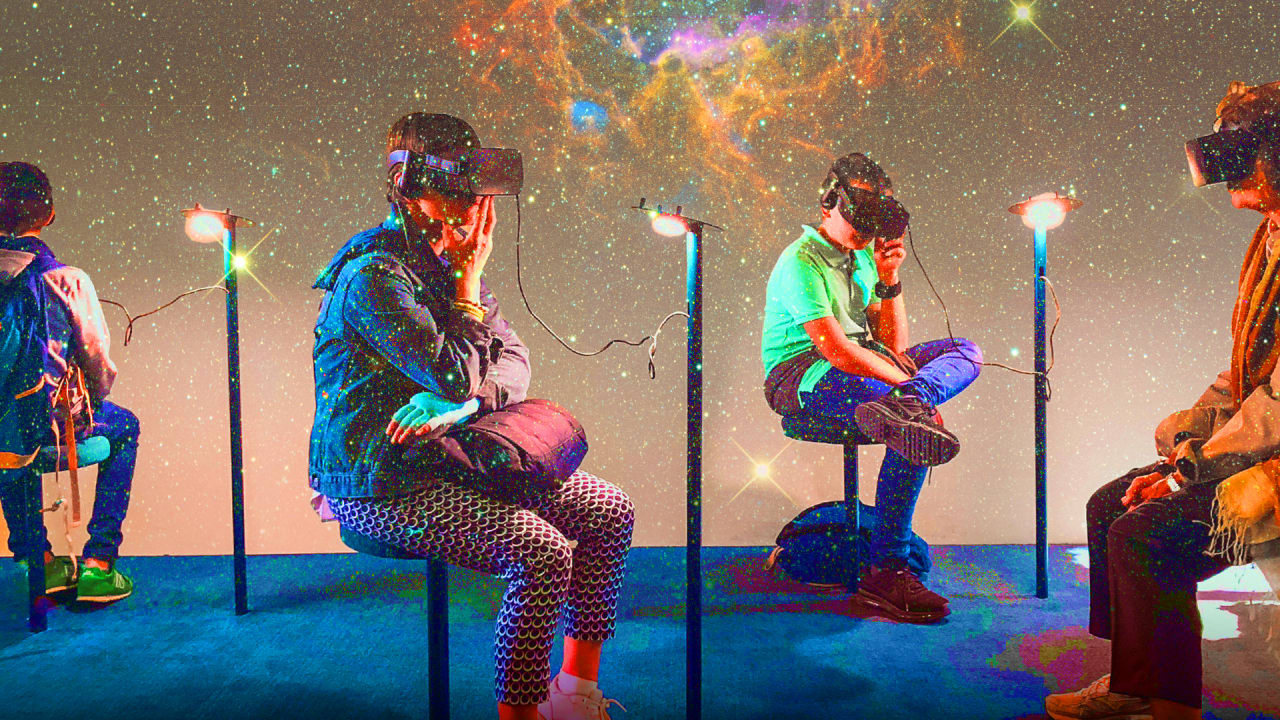
Metaverse and Its Impact on Education
With the advancements in technology, the idea of the metaverse is becoming increasingly relevant and is poised to have a significant impact on education. As the metaverse continues to evolve, it has the potential to revolutionize the way we learn and educate.
Metaverse offers new opportunities for virtual classrooms and simulations, increased collaboration and engagement, personalized and immersive learning experiences, and the potential to democratize education and skill development.
Metaverse and Online Learning
Metaverse has the potential to greatly enhance online learning by providing virtual classrooms and simulations for students.
These virtual environments can be tailored to provide a more engaging and interactive learning experience, allowing students to visualize and experience concepts in a way that may be difficult to achieve through traditional online learning methods.
Metaverse also offers increased collaboration and engagement opportunities for students, as they can interact with their peers and teachers in real time, regardless of their physical location. This can facilitate group projects and discussions, as well as provide opportunities for remote students to feel more connected to their classmates and the classroom.
Personalized and immersive learning experiences are also possible in the metaverse. Students can be placed in virtual environments that are tailored to their learning style and pace, allowing them to learn at their own speed and in a way that is most effective for them.
They can also explore and experiment with virtual objects and simulations, which can provide a deeper understanding and retention of the material.
However, there are also potential challenges and limitations to the use of the metaverse in online learning. Access to the technology and the necessary hardware may be a barrier for some students, and there may be concerns about the privacy and security of personal information in virtual environments.
Additionally, the development and maintenance of virtual classrooms and simulations can be costly and time-consuming.
Metaverse has the potential to greatly enhance online learning by providing virtual classrooms and simulations, increased collaboration and engagement, and personalized and immersive learning experiences, but it also has potential challenges and limitations.
Metaverse and Skill Development
Metaverse offers a unique opportunity for hands-on training and experiential learning through virtual simulations and environments. This allows students and professionals to practice and develop skills in a safe and controlled environment, without the need for expensive and potentially dangerous physical equipment.
In the metaverse, students can access diverse and specialized resources that may not be available in the physical world, such as virtual simulations of rare or dangerous situations.
They can also collaborate and learn from experts in different fields, regardless of their physical location, allowing for a more diverse and well-rounded education.
Metaverse also provides opportunities for real-world application and problem-solving. Students can take the skills and knowledge they’ve acquired in virtual environments and apply them to real-world scenarios, allowing them to see the practical applications and implications of what they’ve learned.
Metaverse has the potential to democratize education and skill development by providing access to resources and opportunities that may otherwise be unavailable to certain individuals or communities. However, as with online learning, access to technology and the necessary hardware may be a barrier for some individuals, and there may be concerns about the privacy and security of personal information in virtual environments.
Metaverse offers new opportunities for hands-on training, access to diverse and specialized resources, opportunities for real-world application and problem-solving, and the potential to democratize education and skill development, but also has potential challenges and limitations.
Metaverse and Research
Metaverse has the potential to greatly enhance research by providing virtual laboratories and simulations that can be used to study complex systems and phenomena.
These virtual environments can be tailored to provide a more controlled and precise research setting, allowing researchers to test hypotheses and gather data in a way that may be difficult or impossible to achieve in the physical world.
Metaverse also enables collaborative and multidisciplinary research, as researchers can interact and work together in real-time, regardless of their physical location. This can lead to more efficient and effective research, as experts from different fields can come together to share their knowledge and skills.
Metaverse also increases accessibility to data and resources, as virtual environments can be used to gather and store large amounts of data, and simulations can be used to analyze and interpret that data.
This can lead to new insights and discoveries, and can also help to reduce the time and cost associated with traditional research methods.
However, as with other areas, there are potential challenges and limitations to the use of the metaverse in research. The cost and complexity of developing and maintaining virtual environments and simulations can be significant, and there may be concerns about the privacy and security of personal information and research data in virtual environments.
Metaverse has the potential to greatly enhance research by providing virtual laboratories and simulations, enabling collaborative and multidisciplinary research, and increasing access to data and resources, but also has potential challenges and limitations.
Conclusion
As technology continues to advance and the metaverse becomes more prevalent, it will be important to consider these potential challenges and limitations while also exploring the possibilities and potential benefits of this new technology in the field of education, skill development, and research.





